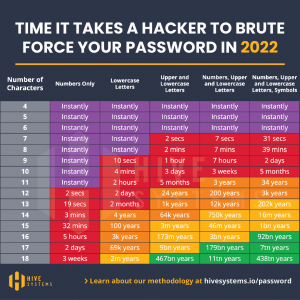As you approach age 59½, you’re nearing a significant milestone that brings new opportunities for your financial future. This age marks a turning point where the IRS allows you to withdraw from your retirement accounts without incurring penalties. At Trilogy Financial, we provide comprehensive High Net Worth Retirement Planning strategies tailored to your unique needs, helping you navigate this critical phase with confidence.
Understanding the Importance of Age 59½
Reaching the age of 59½ is a pivotal moment in your retirement journey for several reasons:
- Penalty-Free Withdrawals: The IRS permits penalty-free withdrawals from retirement accounts, such as IRAs and 401(k)s, providing greater flexibility in managing your retirement funds.
- Catch-Up Contributions: If you’re over 50, you can make additional contributions to your retirement accounts, helping to boost your savings significantly.
- Approaching Social Security: You are within a few years of being eligible for Social Security benefits, allowing you to plan more effectively for your retirement income.
Building Your Retirement Savings
Despite the importance of saving for retirement, many Americans find themselves with insufficient funds. According to financial experts, you should aim to have at least $1 million in retirement savings to support a comfortable 30-year retirement. However, the reality is that many people have far less saved.
Strategies to Enhance Your Retirement Savings:
- Catch-Up Contributions: If you’re 50 or older, you can contribute additional amounts to your retirement plans. For example, you can make $6,000 in catch-up contributions to 401(k) plans and $1,000 to IRAs annually.
- Prioritize Saving Over Spending: Shift your focus from spending to saving, ensuring you allocate a portion of your income to retirement accounts at the beginning of each pay cycle.
- Seek Professional Advice: An Executive Financial Planning advisor can provide personalized guidance to help you maximize your retirement savings and take advantage of all available options.
Staying Healthy in Your Golden Years
Maintaining good health is essential for enjoying a fulfilling retirement. As you age, your health needs change, and it’s important to stay proactive about your well-being.
Health Tips for Older Adults:
- Regular Check-Ups: Keep up with medical appointments and screenings to catch potential health issues early.
- Healthy Diet and Exercise: A balanced diet and regular physical activity can help maintain your vitality and reduce the risk of chronic diseases.
- Mental Health: Staying socially active and engaged can improve your mental health and overall quality of life.
Seeking Professional Financial Advice
Navigating the complexities of retirement planning requires experienced guidance. At Trilogy Financial, we offer Customized Retirement Solutions and Private Wealth Services to help you pursue your financial goals. Our services include:
- Investment Strategies for High-Net-Worth Individuals
- Estate and Inheritance Planning
- Life and Long-Term Care Insurance
- Philanthropic Financial Planning
Our team of financial professionals is dedicated to helping you pursue financial independence and secure a comfortable retirement.
What might a Custom Retirement Solution include?
Multi-Generational Wealth Planning
Multi-Generational Wealth Planning is essential for ensuring that your financial legacy benefits future generations. This involves creating strategies that protect and grow your assets while considering the needs of your children and grandchildren.
Trust Fund Management
Trust Fund Management plays a critical role in managing and distributing your assets according to your wishes. This professional ensures that the trust operates smoothly and that beneficiaries receive their designated assets without delays or legal complications.
High-Net-Worth Tax Strategies
High-Net-Worth Tax Strategies are designed to minimize tax liabilities and maximize the growth of your wealth. Working with a knowledgeable tax advisor can help you implement these strategies effectively.
Customized Wealth Management Plans
Customized Wealth Management Plans provide tailored solutions to meet the unique needs of high-net-worth individuals. These plans consider your specific financial goals and circumstances, offering a personalized approach to managing your wealth.
Legacy Planning for High-Net-Worth Families
Legacy Planning for High-Net-Worth Families ensures that your wealth is transferred according to your wishes and provides for future generations. This includes creating comprehensive estate plans that address your family’s unique needs and goals.
The Takeaway –
Age 59½ marks an important milestone in your retirement planning journey. With the right strategies and professional guidance, you can optimize your retirement savings, navigate Social Security benefits, and maintain your health for a fulfilling retirement. At Trilogy Financial, we specialize in High Net Worth Retirement Planning, Executive Financial Planning, and Private Wealth Services, providing tailored solutions to meet your unique needs. Contact us today to discover how we can help you achieve your financial goals and enjoy a prosperous future.
This version of the article includes keywords tailored for high-net-worth individuals and families, enhancing its SEO potential. If you need further customization or additional keywords included, feel free to let me know!
Ready to Amplify Your Wealth today?
If you're ready to elevate your financial planning with our professional team, we invite you to schedule a meeting with us. At Trilogy Financial Services, our advisors in Corona are dedicated to crafting personalized financial strategies that align with your unique goals. Don't wait to start your journey towards financial success:
- Schedule a Meeting: Reach out to us to arrange a one-on-one consultation with our financial professionals.
- Give Us a Call: Prefer a quick conversation? Feel free to give us a call to discuss your financial needs and how we can assist. Call Us To Get Started. (844) 356-4934
Schedule a No-Strings-Attached Portfolio Review today and embark on a path to financial success guided by professional advisors. For more information and to schedule your consultation, visit www.trilogyfs.com/yourmoneyamplified. With the right knowledge and professional guidance, the journey of investing becomes an exciting venture towards achieving financial security and growth. This way, you're not just dreaming of an ideal retirement but actively working towards making it a reality.


